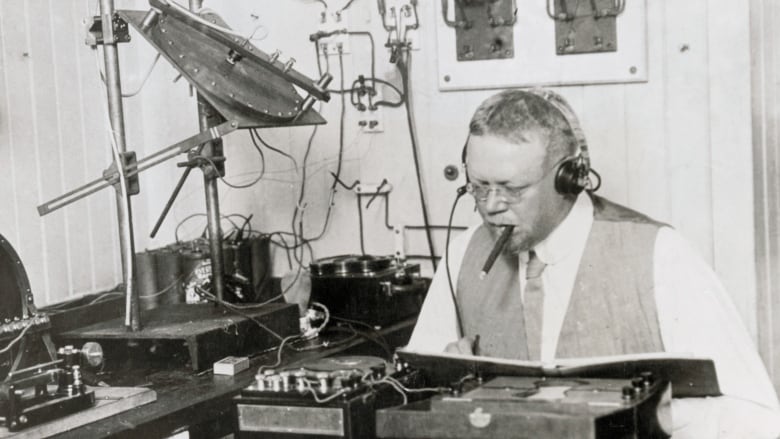Next up on our whirlwind tour of the Top 10 Canadians of the 20thCentury is Reginald Fessenden, born in Quebec in 1866, the son of an Anglican minister. He was a bright kid but bounced from one educational facility to another but never seeming to get a degree. Despite knowing nothing about electricity, he got a job as a lab assistant for one of Thomas Edison’s departments. Using that experience he got a job in the electrical engineering department of what became the University of Pittsburgh where he began to experiment with the newly discovered “wireless telegraphy”.

Fessenden pioneered many electronic principles and devices that made signals more powerful and capable of sending voice messages, instead of just Morse code. The result of this was the invention of AM radio. Here is how the Encyclopedia Britannica explains his idea:
He developed the idea of superimposing an electric signal, oscillating at the frequencies of sound waves, upon a radio wave of constant frequency, so as to modulate the amplitude of the radio wave into the shape of the sound wave. (This is the principle of amplitude modulation, or AM.) The receiver of this combined wave would separate the modulating signal from the carrier wave and reproduce the sound for the listener.
Using this notion, he was responsible for the world’s first radio program. Fessenden had a contract to provide ships of the United Fruit Company with wireless receivers and on Christmas Eve 1906, he beamed these vessels a broadcast of recorded and live music (played by Fessenden) and a passage from the Gospel of Luke.
Despite this triumph by one of its native sons, the Canadian government gave the Italian inventor Marconi exclusive rights to build wireless stations in Canada
After his work with radio, which produced enormous legal headaches for years, he went on to engineer the Niagara Falls power plant, and invent sonar, microfilm, tracer bullets, seismological techniques, a turboelectric drive for battleships, and television apparatus. After many years of litigation and struggle over patents he became wealthy when his intellectual property was finally recognized; he retired to Bermuda where he died in 1932.
[…] https://gerrybowler.com/reginald-fessenden/ […]